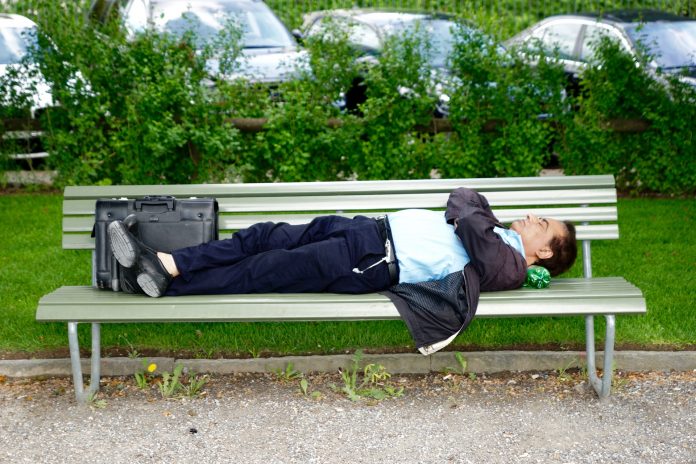If you’re not putting in enough hours of sleep at night, a new study just added another harmful health effect that should convince you to spend more time catching those z’s. Researchers at the University of Zurich and the University Hospital Zurich found a lack of sleep may lead people to take more risk-seeking behavior, and they may not even realize they’re acting any differently.
Published in the Annals of Neurology, researchers pooled from a sample of 14 male students aged 18 to 28. If students slept a mere 5 hours per night, they displayed greater risk-taking behavior than when they slept 8 hours per night. Twice per day, students were given a chance to get monetary payment but they had to decide how they wanted to get paid: either get a fixed and low monetary amount or gamble for a potentially higher payout at the risk of getting nothing.
As the week wore on, more and more of the students sleeping just five hours per night chose to take the riskier bet. By the end of the week, 11 out of the 14 total opted to gamble for their payment. It suggests the effects of sleep deprivation on risk-taking are cumulative.
Interestingly, researchers asked students if they were aware of their risk-taking behavior and most participants responded that they didn’t. “We therefore do not notice ourselves that we are acting riskier when suffering from a lack of sleep,” said study co-author Christian Baumann, professor of neurology and the head of the Clinical Research Priority Programs (CRPP) “Sleep and Health” at UZH.
While the sample pool for this study was relatively small and limited to just men, the findings align with earlier research pointing to the negative side effects of a lack of shut eye. Known problems can range widely from heart disease to depression. What’s worse, sleep deprived individuals often don’t realize they’re running on a deficit at all.
“Studies show that over time, people who are getting six hours of sleep, instead of seven or eight, begin to feel that they’ve adapted to that sleep deprivation — they’ve gotten used to it,” sleep expert Dr. Phil Gehrman told WebMD. “But if you look at how they actually do on tests of mental alertness and performance, they continue to go downhill. So there’s a point in sleep deprivation when we lose touch with how impaired we are.”
But it’s not all bad news. Studies like this one continue to help change perceptions about the importance of getting enough hours of sleep – this time so we can stay clear-headed and responsible in our decision-making process. According to Bauman, at least in “the high-powered world of managers, getting enough sleep is increasingly being seen as desirable.”











